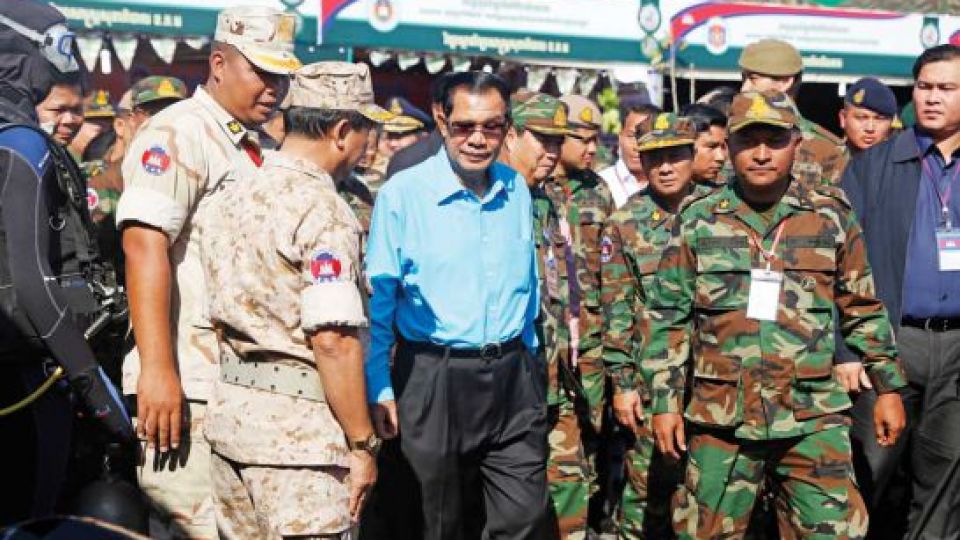July 30, 2018
Cambodia’s ruling party has won the election in a landslide, here is a round-up of headlines and analysis from around the region.
Cambodia’s ruling party, headed by Prime Minister Hun Sen, has won Sunday’s election in a landslide with many observers calling the process a ‘sham’ and pointing to the repression of dissent and opposition in the run-up to voting.
Voters began streaming into Cambodia’s polling stations on Sunday morning (July 29) after weeks of campaigning marked by calls from political exiles to boycott the one-sided election, according to Straits Time’s journalists.
“Over the past year, several independent outlets, citing pressure from the government, have ceased operations. On Saturday, officials confirmed to Voice of America (VOA) journalists that they had ordered Internet service providers to block access at least 15 websites, including the Voice of America’s Khmer service, the Radio Free Asia’s Khmer service, and the Voice of Democracy.”
Foreign Criticism
Rights groups have criticized the elections both before and after polls citing the lack of opposition to Hun Sen.
According to Human Rights Watch:
“Serious problems with the electoral process include: arbitrary dissolution of the main opposition party, the Cambodia National Rescue Party (CNRP), and surveillance, intimidation, detention, and politically motivated prosecution of key opposition members. Other major concerns include a crackdown on independent media, a lack of fair and equal access to the media, and repressive laws restricting speech, association, and assembly. The national election commission is not independent. Across the country, senior military and police officials have been continuously campaigning for the ruling Cambodian People’s Party (CPP).
According to the ICJ:
During the course of ensuring it will win the national election scheduled for this Sunday (29 July), Hun Sen’s ruling Cambodian People’s Party (CPP) has, since the last election, systematically altered the country’s constitutional and legal framework – and these changes will remain in place after the election has passed.
This misuse of the law is a significant development in the history of modern Cambodia and represents a determined move away from the vision enshrined in the historic 1991 Paris Peace Agreements that ended years of conflict and sought to establish a peaceful and democratic Cambodia founded on respect for human rights and the rule of law.
And it risks cementing the human rights and rule of law crisis that now exists within Cambodia for years to come.
Cambodian Response:
Despite these criticisms, Cambodia remained bullish about the election at hit back at Human Rights Watch and several other organizations.
The National Election Committee (NEC) and the ruling Cambodian People’s Party (CPP) reacted strongly to the statements from Human Rights Watch (HRW) which had called the July 29 general election “not genuine”.
The NEC called the statement politically motivated while a CPP leader said the watchdog had no right to determine the fate of the Kingdom’s people, and that its comment was an attack on his party.
CPP spokesman Sok Eysan said the international human rights organisation has no right to evaluate the election in Cambodia. He said the body has “ill-intentions” toward Cambodia and the CPP in particular.
“There will be no foreign evaluation to determine the fate of the Cambodian people. Only Cambodians can determine the fate of the Kingdom.
“The HRW has ill intentions toward the CPP because his [Brad Adams’] brain determines that the CPP is a communist party, and close with the Communist Party of China. That is why it is not happy,” Eysan said.
US relations under scrutiny
Prior to the elections, the United States’ House of Representatives passed the Cambodia Democracy Act which aimed sanctions at Hun Sen’s inner circle in a bid to “promote free and fair elections, political freedoms and human rights in Cambodia and impose sanctions on Hun Sen’s inner circle.”
Cambodia has hit back at the legislation saying that such a bill would only harm bilateral relations. Council of Ministers spokesman Phay Siphan told reporters that any act against the Kingdom’s leaders equally affects the people and will effectively destroy Cambodia-US relations.
“It will also cause considerable harm to US-Asean bilateral relations due to the economic bloc’s policy of ‘non-interference in the internal affairs of foreign nations’,” he added.


